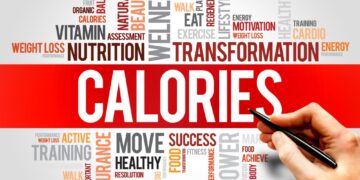
We know that food feeds the body and shapes the waistline. But many of us forget that what we eat also nourishes the brain and shapes our thoughts and actions. Students pay little attention to their health and nutrition. They are focused on their homework, where to hire essay writers, or how to get to a party, not on their diet. It’s a dare.
The brain is the hungriest organ of our body. It consumes 20% of the total energy. If you skip meals, eat fast food, drink alcohol or gas, you will soon see the negative effects of your eating on your academic performance. We have prepared products that students should include in their diet to stay productive and not damage their brains.
Drink enough water
You must drink enough non-gasified drinking water throughout the day — not less than two liters. If you drink coffee, do not drink more than two cups daily before noon. Try to compensate each cup of coffee with a glass of water.
Fatty acids

Long-chain polyunsaturated fatty acids are essential for our brains. They include the renowned Omega-3 that all girls order on iHerb for their skin and hair. However, you can get it from food.
Fish is perfect for the brain. It is the best natural source of fat, which is necessary for the brain throughout the whole life. It includes salmon, mackerel, anchovies, and sardines.
A good alternative to fish is flax or chia seeds. Or you can make a salad with avocado, salmon, chia seeds, and cucumbers and make it a win-win combination.
Berries
In a small 2017 study, healthy adults who consumed mixed berry drinks daily for nine months had better cognitive test results than placebo drinkers. Add fresh berries to your oatmeal and smoothies, or eat them as a snack.
Vitamins and minerals
Enjoy all kinds of vitamins and minerals, especially those with antioxidant effects. Pay attention to vitamins such as A, C, E, selenium, iron, zinc, and copper.
The best source of all this is fruit and vegetables: eat berries, oranges, grapefruit, and apples. They are sweet but have a low glucose index.
Green leafy or cabbage vegetables (broccoli, spinach, cabbage, lettuce), and other vegetables like carrots, tomatoes, or pumpkin, are also full of vitamins, minerals, fibers, and vital substances that fight diseases and are necessary for a healthy nervous system.
Whole grains

Whole grains contain more protein and cells than refined ones. This is how they maintain the level of zinc in the blood and energy and keep your mind sharp. A 2017 study showed that whole grains could also play a role in delaying age-related cognitive problems. Replace white bread and pasta with whole-grain bread and brown rice.
Harmful foods for the brain
The most deadly food is that filled with trans fats and refined sugar (cakes, biscuits, chips, ready-made pastries, frozen foods, etc.). This also includes all margarine, industrial syrups, and all kinds of creamy dairy products.
You should definitely cut on or refuse to eat processed meat like salami and sausages.
The more often you eat harmful products, the greater the risk of a decrease in cognitive abilities and the development of dementia.











